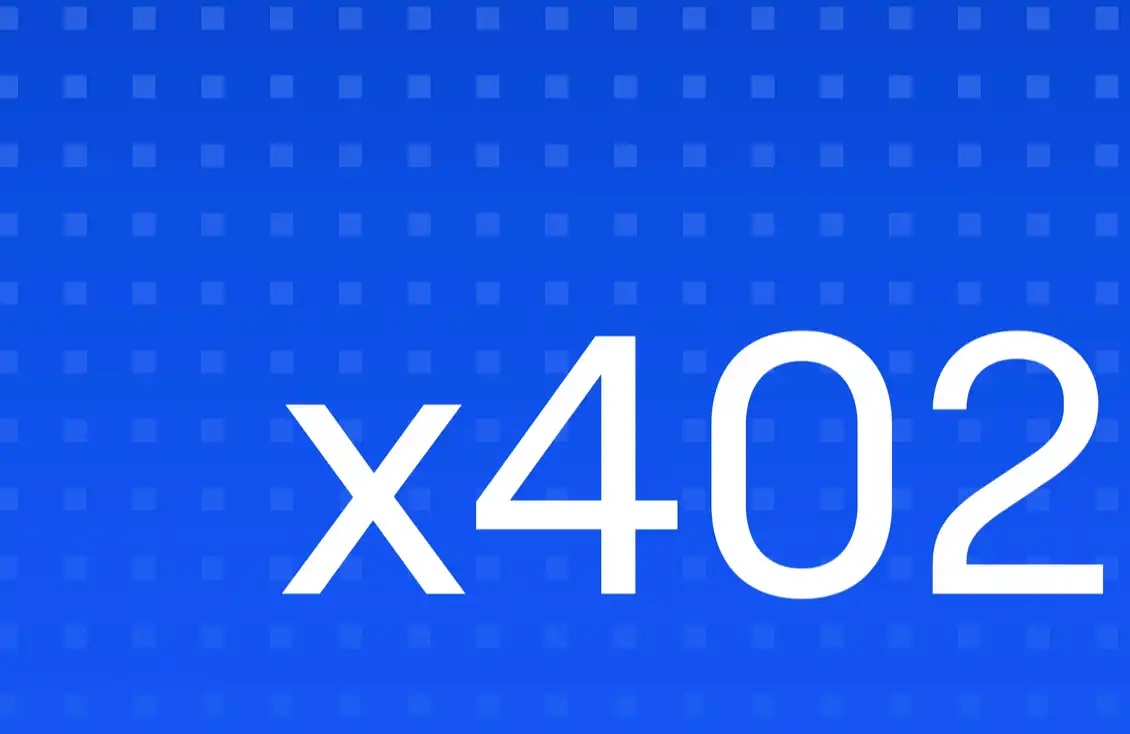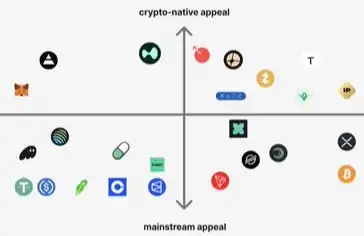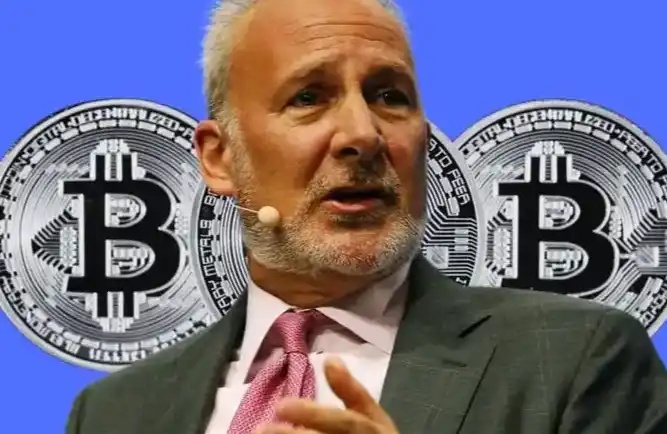PayPal launches stablecoin, providing a compliant entry point for 430 million people into the crypto industry.
On the evening of August 7th Beijing time, PayPal, a payment company headquartered in San Jose, California, announced that it will launch a stablecoin called PayPal USD (PYUSD). The stablecoin will be issued by Paxos Trust (the former issuer of BUSD), fully backed by deposits in US dollars, short-term government bonds, and similar cash equivalents, and will gradually be made available to PayPal customers in the United States.
Despite having ventured into the cryptocurrency industry in recent years, the launch of PayPal's official stablecoin can still be considered a significant event in the development of cryptocurrency. As a convenient gateway into the world of cryptocurrency, stablecoins are often seen as an important tool for guiding cryptocurrency users. Currently, this task is mainly undertaken by USDC and USDT, but due to the lack of traditional financial and real-world use cases, the main users of these stablecoins are still internal participants in the cryptocurrency industry.
On the other hand, due to the development and promotion of CBDCs in various countries, stablecoins have always faced strict regulatory pressure. Previously, Facebook's ambitious stablecoin project Libra ultimately announced its failure under such pressure. Therefore, the launch of PayPal's stablecoin will play an important historical role in the process of cryptocurrencies entering traditional finance and the real economy. It not only means that 430 million PayPal users will have more stable and convenient access to cryptocurrencies, but will also further promote the gradually loosening cryptocurrency policies. What's more interesting is that for Musk and Twitter, the launch of PayPal's stablecoin adds a lot of imagination space to his "X dream" that he has always wanted to achieve.
4.3 Billion People's Channel
In PayPal's announcement, the company stated: "PayPal USD aims to reduce friction in virtual environments for inexperienced payments, facilitate quick value transfer to support friends and family, remittances or international payments, enable direct flow to developers and creators, and promote the continued expansion of digital assets by the world's largest brand. Currently, most stablecoins are used in web3-specific environments - PayPal USD will be compatible with this ecosystem from day one and will soon be available on Venmo."
PYUSD will be launched in the coming weeks. Eligible US customers who purchase PayPal USD will be able to:
1) Transfer PYUSD between PayPal and compatible external wallets.
2) Use PYUSD for person-to-person (P2P) payments.
3) Choose to use PYUSD for purchase at checkout.
4) Convert any cryptocurrency supported by PayPal to PYUSD.
5) Buy and sell at a price of 1 USD per PayPal USD through PayPal.
As the only stablecoin supported within the PayPal network, PayPal USD leverages decades of experience in large-scale payments from PayPal, combined with the speed, cost, and programmability of blockchain protocols. As an ERC-20 token issued on the Ethereum blockchain, PayPal USD will be available for use by the already large and growing external developer, wallet, and Web3 application communities, and can also be easily adopted by exchanges.
As of now, PayPal has over 431 million active accounts worldwide. However, due to the weakening momentum of online payments during the pandemic, PayPal's stock price has fallen by over 35% in the past 12 months. In addition, the company has expanded its consumer and merchant services, such as operating capital loans and remittances, on many of its platforms. Last week, the company stated that it must allocate more funds in the second quarter to repay bad loans issued to merchants, which caused its stock price to plummet by 12% in a single day. Amidst these challenges, PayPal's President and CEO, Dan Schulman, recently announced his resignation in the coming months.
Therefore, PayPal USD can be said to be Sherman's last important work in his PayPal career. Previously, Sherman had always hoped that PayPal could establish a dominant position in the digital payment field by relying on intermediary-free instant and low-cost transfer technology. In an interview with Bloomberg, he said, "The transition to digital currency requires a stable tool that is both native to digital and easy to connect with legal currencies such as the US dollar... Over time, our vision is to become part of the entire payment infrastructure."
In addition to creating products and services that increase the usability of digital currencies, PayPal is also committed to improving consumer and merchant understanding of cryptocurrencies, stablecoins, and central bank digital currencies (CBDCs), while working closely with regulatory agencies as the industry develops. In addition to offering PayPal USD to US account holders, PayPal currently provides customers with the ability to buy, hold, sell, and transfer selected cryptocurrencies, and offers educational content to help account holders understand the risks and possibilities of this technology.
It is worth noting that the company that helps issue PayPal USD is Paxos Trust, which previously collaborated with Binance to issue BUSD. Paxos Trust is a fully licensed limited purpose trust company regulated by the New York State Department of Financial Services. With its assistance, PayPal obtained a conditional BitLicense in June 2022 and subsequently received a BitLicense issued by NYDFS.
According to an official announcement, starting from September 2023, Paxos will release the PayPal USD Monthly Reserve Report, which outlines the tools that make up the reserve. Paxos will also provide public third-party proof of the value of PayPal's USD reserve assets. The certification will be issued by an independent third-party accounting firm and will be conducted in accordance with the auditing standards established by the American Institute of Certified Public Accountants (AICPA).
In June 2019, after years of preparation, Facebook (now Meta) launched an ambitious project: a cryptocurrency called Libra. In Meta's plan, the project would be supported by an international consortium of companies, aimed at providing financial services to people who lack access to banking, and expanding its mission as a social media platform to connect the wider world to the thriving digital currency market.
Facebook's cryptocurrency will be managed by the Libra Association, which is composed of companies such as Visa, Mastercard, and PayPal. Each member has equal voting rights and must pay a $10 million reserve, and ultimately integrate Libra into their services to bring digital currency to more consumers.
However, soon after its launch, Libra faced significant regulatory pressure. In October 2019, PayPal announced its withdrawal from Libra. Shortly after, members such as Visa, Mastercard, eBay, and Stripe also announced their withdrawal. In May 2020, Facebook renamed its Calibra payment division to Novi. About six months later, the Libra Association was renamed to Diem in an attempt to distance itself from Libra's failure. In October, Facebook launched a pilot of the Novi digital wallet, but not Diem. Shortly after, David Marcus, who led the Libra project, left Facebook.
The failure of Libra is not the only setback for PayPal in the digital currency payment road. In May 2022, the historic collapse of TerraUSD resulted in investors losing over 40 billion US dollars, directly causing regulatory agencies to pay attention to cryptocurrencies, especially stablecoins.
Related reading: "The Four-Year Rise and Fall of the $15 Billion Stablecoin Empire: The Ambition and Regret of BUSD".
PayPal Encryption History
As early as 2016, PayPal established a long-term partnership with Coinbase. In 2018, Coinbase allowed US customers to withdraw funds instantly through PayPal. Last year, European Coinbase users were able to withdraw funds from their PayPal accounts, with Canadian users following closely behind.
In early 2020, sources said that after a brief collaboration with Facebook-led Libra project last year, PayPal's focus now is on expanding its payment expertise. Subsequently, PayPal released some job vacancies to expand its new blockchain research team. Sri Shivananda, PayPal's Chief Technology Officer, said in an interview that the company hopes to "have its own views and opinions on blockchain technology itself, and see how it can help us realize the concept of creating an open digital payment platform that can serve everyone."
In June 2020, PayPal announced plans to directly sell cryptocurrencies to its 325 million users. In October, Paxos co-founder and CEO Charles Cascarilla announced that Paxos would support PayPal's "new service," allowing US users to buy, hold, and sell crypto assets directly from their PayPal digital wallets.
In December of the same year, according to a research report by Japanese securities company Mizuho Securities, conducting Bitcoin transactions among PayPal users may be beneficial to its stock price, and it is expected that revenue may increase by about 20% next year. The report raised the company's stock target price from $270 to $290, while PayPal's stock price at the time was $218. Meanwhile, Paxos announced that it had raised $142 million in Series C financing from companies such as PayPal.
In February 2021, according to PayPal's report to investors, in the fourth quarter of 2020, PayPal added a net of 16 million active accounts and processed a total payment volume of $277 billion. Users who purchased cryptocurrency through the platform logged in twice as often as before. This is the first profit for the payment giant since launching its cryptocurrency buying service at the end of last year. PayPal's transaction revenue increased by about 12% quarter-on-quarter to $5.7 billion in the fourth quarter of 2020.
In March 2021, Reuters reported that PayPal will launch a cryptocurrency settlement service, allowing US consumers to use their held cryptocurrencies to pay millions of online merchants worldwide. The next day, PayPal CEO Schulman used Bitcoin to buy a pair of cowboy boots through PayPal and recorded the purchase process for online release. In April, Paxos announced the completion of a $300 million Series D financing round, with PayPal as a continued investor.
In May, according to The Block, PayPal is considering launching a stablecoin. Insiders say that PayPal is more inclined to cooperate with third parties in issuing stablecoins and has discussed stablecoin issues with multiple teams, including the Avalanche team. Previously, Bloomberg developer Steve Moser found relevant code for PayPal exploring the construction of its own stablecoin in the PayPal iPhone application.
In April 2022, PayPal President and CEO Schulman emphasized during the company's quarterly earnings conference call that digital wallets will play a key role in PayPal's future growth. "We need to double down on digital wallets. I believe this is the future of the industry and also the core of PayPal," he said.
马斯克的「X 梦想」
translates to
Musk's "X Dream"
in English.
According to Walter Isaacson, the author of "The Musk Biography," Musk said, "If you just want to be a niche payment system, PayPal is better... but if you want to take over the world financial system, then X is a better name."
In 2017, Musk purchased the X.com domain from PayPal for an undisclosed amount. Musk thanked PayPal on Twitter for allowing him to buy back the X.com domain and stated, "There are no plans for it, but it has great emotional value to me." Five years later, Musk acquired Twitter for $44 billion and officially merged his newly acquired social media company into a Nevada-registered entity named X Corp.
Elon Musk stated in October 2022: "Acquiring Twitter is an accelerator for creating the all-in-one application X." The CEO of Twitter made this statement at a live forum, saying, "If you're in China, you can live your life through WeChat, which can do everything. X is a bit like Twitter, plus PayPal, plus a bunch of other things, all integrated into one interface with a great user experience."
Therefore, in Musk's initial vision for Twitter, he included the embedding of a financial system. However, in August 2023, Twitter user @cb_doge tweeted a reminder to cryptocurrency players that Elon Musk and X(Twitter) have never issued any cryptocurrency, beware of scams. Musk replied to the tweet, "We will never (issue cryptocurrency)."
However, Twitter, without an internal payment system, has indeed been limited in many ways. In August 2023, Musk tweeted that he would talk to Apple CEO Tim Cook to see if the company would adjust the 30% commission it charges for in-app purchases. Currently, Apple charges a 30% commission for all in-app purchases on iOS, including subscriptions sold by creators through Twitter. Musk said he hopes to change this situation and allow Apple to only take a 30% commission on the portion of profits obtained by Twitter, maximizing the earnings of creators on Twitter.
Musk added that Twitter is also changing the way it charges commissions from creators. He said that Twitter only takes 10% of subscription revenue from creators after 12 months, and is currently adjusting to take 10% when creator revenue exceeds $100,000. At the same time, under this new model, Twitter will still not charge any fees from creators in the first 12 months.
In February of this year, Musk promised to start paying a portion of Twitter ad revenue to creators. In June, he announced that the initial revenue sharing total would be $5 million, and that this revenue sharing had been distributed to eligible creators in July. Twitter shares the ad revenue it receives from people replying to tweets directly with users, so the more people who reply to tweets and the more people who view ads in those replies, the more revenue creators can earn. Currently, to be eligible for compensation, users must purchase Twitter Blue and have at least 5 million views on their tweets each month.
When discussing the potential of Twitter, Elon Musk stated on the All-In Podcast that payments could become a part of the platform's products, "whether it's cryptocurrency or fiat currency." In the past, Musk has also hinted at making Dogecoin an option for payment on Twitter and even changed Twitter's logo to the Dogecoin logo. While it is unknown whether he was serious about Dogecoin being a payment option on Twitter, the launch of PYUSD may provide a new option for the Twitter CEO, who has a deep connection to the world of cryptocurrency.
Loose compliance exposure, intensified competition on the track
Since the Hong Kong Web3 Conference in April, the entire cryptocurrency world has felt that the encryption policies of mainstream countries are gradually loosening, even in the recent months when the SEC has been cracking down strongly.
On June 16th of this year, BlackRock, one of the world's largest asset management groups, submitted a filing for a Bitcoin ETF through its subsidiary iShares to the US SEC, which has attracted significant attention from both inside and outside the industry. For a long time prior to this, the SEC had been under immense regulatory pressure and many spot Bitcoin ETFs had not been approved, yet the world's largest asset management giant unexpectedly applied for a Bitcoin ETF. Shortly thereafter, EDX Markets, a new cryptocurrency trading platform supported by Citadel Securities, Fidelity Investments, and Charles Schwab, began executing trades.
Related reading: "EDX Markets, the "new darling" of Wall Street, goes live, accelerating the entry of traditional capital?"
On July 14th, a US court ruled that XRP is not a security, injecting a powerful shot in the arm for the industry. Subsequently, on July 21st, Glenn "GT" Thompson, Chairman of the US House Agriculture Committee and Republican Congressman from Pennsylvania, formally submitted a new digital asset regulatory bill to the House of Representatives, aimed at establishing a regulatory framework to protect investors in the cryptocurrency industry. The bill, after revision, excludes a series of traditional securities from the definition of "digital assets", such as stocks, bonds, "transferable shares", and "equity or participation certificates in any profit-sharing agreement".
Related reading: "Retracing the three-year-long Ripple case, does the court ruling have epoch-making significance?"
The arrival of PayPal stablecoin is another important milestone event for the cryptocurrency industry on the compliance road, which means that the cryptocurrency industry based on payment has a new round of imagination space. However, for individual players in the industry, the launch of PayPal stablecoin may not bring all good news.
After PayPal announced the launch of its payment stablecoin, Patrick McHenry (NC-10), Chairman of the US House Financial Services Committee, made a statement saying, "This is interesting. Another stablecoin has emerged in the United States. It may lead to a decrease in payment revenue that supports Mastercard and Visa. At the same time, it will also help the industry further develop and promote reasonable regulatory policies."
The stablecoin launched by PayPal this time will undoubtedly lead to a decrease in the market share of USDT. According to the data from CoinGecko, the value of circulating stablecoins is about 126 billion US dollars, and the largest one so far is Tether Holdings Ltd.'s USDT. Tether's stablecoin USDT currently has a market share of 67.2%.

Stablecoin market share, data source: DefiLlama
Although Paolo Ardoino, the Chief Technology Officer of Tether, the issuer of USDT, stated that the launch of PayPal's stablecoin would not affect Tether because the company does not provide services to US users, shortly after the news of PayPal's stablecoin launch, official data from Curve showed that the current proportion of USDT in the 3pool has reached 68.82% (156,352,796 coins), and USDT has experienced a slight deviation from its peg, falling to around $0.9979.

The compliance journey of PYUSD seems to highlight the loosening of regulatory policies in various countries and regions. After Singapore and Hong Kong embraced Web3 and gained many benefits, various signs also show that the attitude of the US political circles is changing, intending to keep up with the times and embrace digital assets: BlackRock applied for a Bitcoin ETF, the court ruled that XRP is not a security, and PayPal issued a stablecoin PYUSD. The changes in the regulatory environment often determine the fate of an industry.
More importantly, the launch of PayPal's stablecoin PYUSD is undoubtedly a milestone event in the cryptocurrency industry. This payment giant has finally completed its years-long plan in the digital asset field, opening the door to the cryptocurrency world for its 430 million users. Whether PYUSD can break the long-standing dominance of USDT and USDC in the stablecoin market, and how PayPal will use PYUSD to transform the payment ecosystem, is worth continuous attention from the industry. We also look forward to PYUSD opening the door to cryptocurrency compliance.
Welcome to join the official BlockBeats community:
Telegram Subscription Group: https://t.me/theblockbeats
Telegram Discussion Group: https://t.me/BlockBeats_App
Official Twitter Account: https://twitter.com/BlockBeatsAsia


 Forum
Forum Finance
Finance
 Specials
Specials
 On-chain Eco
On-chain Eco
 Entry
Entry
 Podcasts
Podcasts
 Activities
Activities
 OPRR
OPRR











